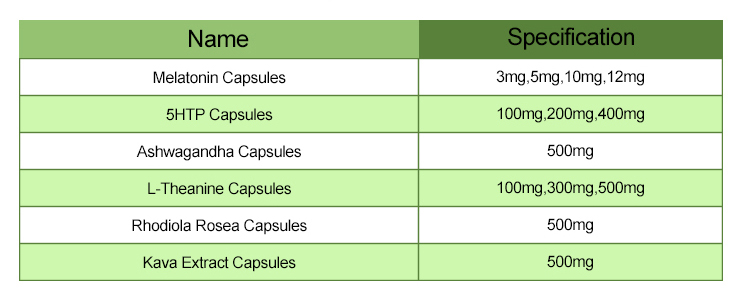Melatonin is a hormone naturally produced by the pineal gland in the brain. Its primary function is to regulate the sleep-wake cycle, also known as the circadian rhythm. Melatonin levels typically rise in the evening as it gets dark, signaling to your body that it’s time to sleep, and decrease in the morning as it gets light, signaling that it’s time to wake up.
Melatonin supplements, such as melatonin capsules, are commonly used to help regulate sleep patterns, particularly in cases of jet lag, shift work, or insomnia. Here’s a breakdown of their efficacy and function:
Regulating Sleep: Melatonin supplements can help regulate the sleep-wake cycle, particularly for people who have difficulty falling asleep or staying asleep. By taking melatonin before bedtime, individuals may experience improved sleep quality and duration.
Jet Lag: Melatonin is often used to alleviate the symptoms of jet lag, such as sleep disturbances and fatigue, by helping to reset the body’s internal clock to the new time zone.
Shift Work Sleep Disorder: For individuals who work non-traditional hours, melatonin supplements may help adjust their sleep-wake cycle to better align with their work schedule.
Insomnia: Melatonin supplements can be effective for some people with insomnia, especially those whose insomnia is related to circadian rhythm disorders or irregular sleep patterns.
Antioxidant Properties: Melatonin also acts as an antioxidant in the body, helping to protect cells from damage caused by free radicals. This antioxidant function may have various health benefits beyond sleep regulation.
Minimal Side Effects: Melatonin is generally well-tolerated, and most people experience few, if any, side effects when taking it. However, some individuals may experience mild side effects such as dizziness, nausea, or daytime drowsiness.
Dosage and Timing: The effectiveness of melatonin supplements can depend on factors such as dosage and timing. It’s essential to follow recommended dosages and take melatonin supplements at the appropriate time to achieve the desired sleep effects.

Consultation with Healthcare Provider: Before starting melatonin supplements, it’s advisable to consult with a healthcare provider, especially if you have any underlying health conditions or are taking other medications, as melatonin can interact with certain drugs.
It’s essential to note that while melatonin supplements can be effective for many people, they may not work for everyone, and their efficacy can vary based on factors such as dosage, timing of administration, and individual differences in response. Additionally, melatonin supplements are generally considered safe for short-term use, but long-term safety and efficacy are still being studied.
As with any supplement or medication, it’s advisable to consult with a healthcare professional before starting melatonin or any other sleep aid, especially if you have underlying health conditions or are taking other medications. They can provide personalized recommendations and help ensure that melatonin is safe and appropriate for your specific situation.
The potential benefits of Melatonin Capsules
Melatonin is a hormone naturally produced by the pineal gland in the brain. It plays a crucial role in regulating sleep-wake cycles. Melatonin supplements, often available in capsule form, are commonly used to address sleep disorders and jet lag. Here are some potential benefits:
Improved Sleep Quality: Melatonin supplements can help regulate the sleep-wake cycle, making it easier to fall asleep and stay asleep. This can lead to improved sleep quality, which is crucial for overall health and well-being.
Jet Lag Relief: Traveling across multiple time zones can disrupt the body’s internal clock, leading to jet lag. Melatonin supplements can help reset this internal clock, reducing the symptoms of jet lag such as fatigue, insomnia, and irritability.
Shift Work Sleep Disorders: People who work irregular or night shifts may struggle with sleep disturbances due to their disrupted schedules. Melatonin supplements can help regulate their sleep patterns and improve sleep quality during non-traditional sleeping hours.
Insomnia Management: Melatonin supplements are often used as a complementary or alternative treatment for insomnia. They can be particularly beneficial for individuals who have difficulty falling asleep or maintaining sleep throughout the night.
Sleep Disorders in Children: Melatonin supplements may also be used to treat sleep disorders in children, such as delayed sleep phase disorder or insomnia related to autism spectrum disorders. However, it’s essential to consult a healthcare professional before giving melatonin to children.

Antioxidant Properties: Melatonin is also known for its antioxidant properties, which can help protect cells from oxidative stress and damage. Some research suggests that melatonin supplements may have potential benefits for overall health beyond sleep regulation.
Mood Regulation: Melatonin may also have a role in regulating mood and reducing symptoms of depression and anxiety. While more research is needed in this area, some studies have shown promising results regarding the potential antidepressant and anxiolytic effects of melatonin.
It’s important to note that while melatonin supplements are generally considered safe for short-term use, they may cause side effects such as daytime drowsiness, headache, dizziness, or nausea in some individuals. Long-term effects and safety of melatonin supplements are still being studied, so it’s advisable to use them under the guidance of a healthcare professional, especially if you have any underlying health conditions or are taking other medications.
